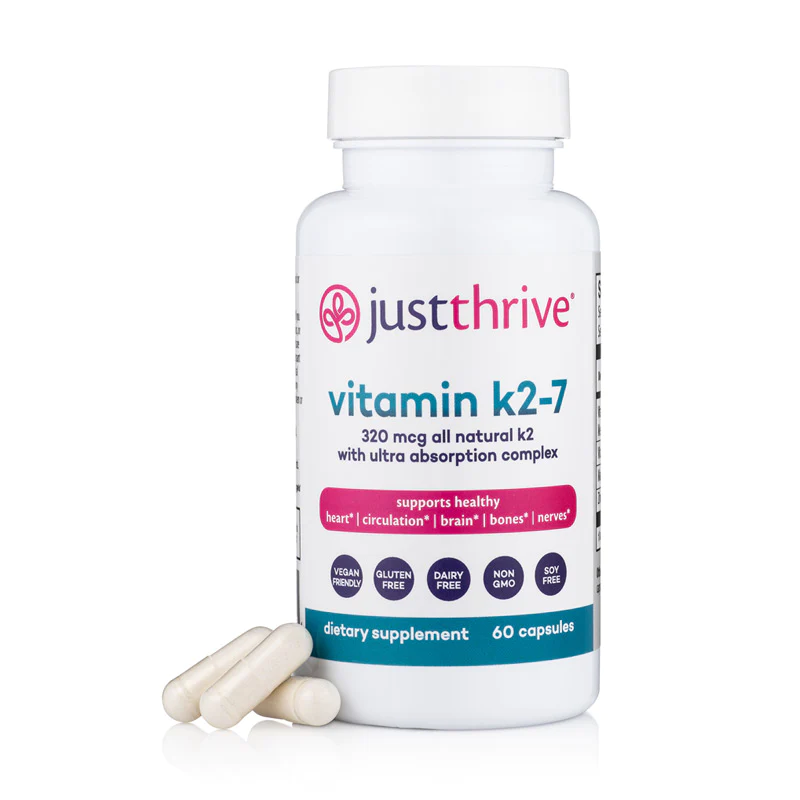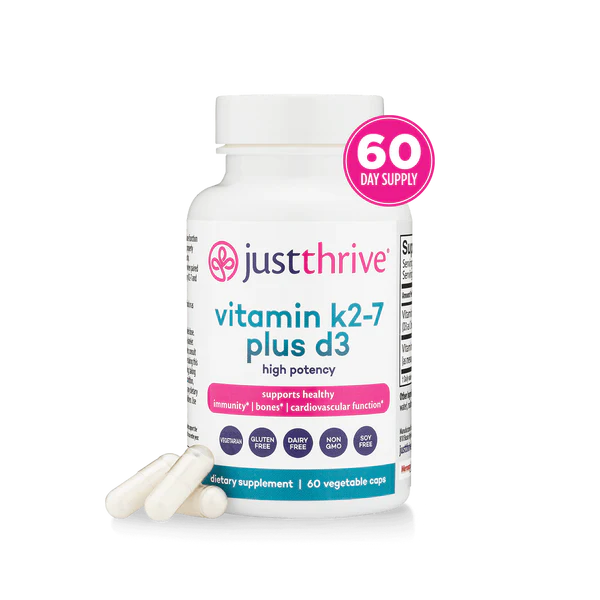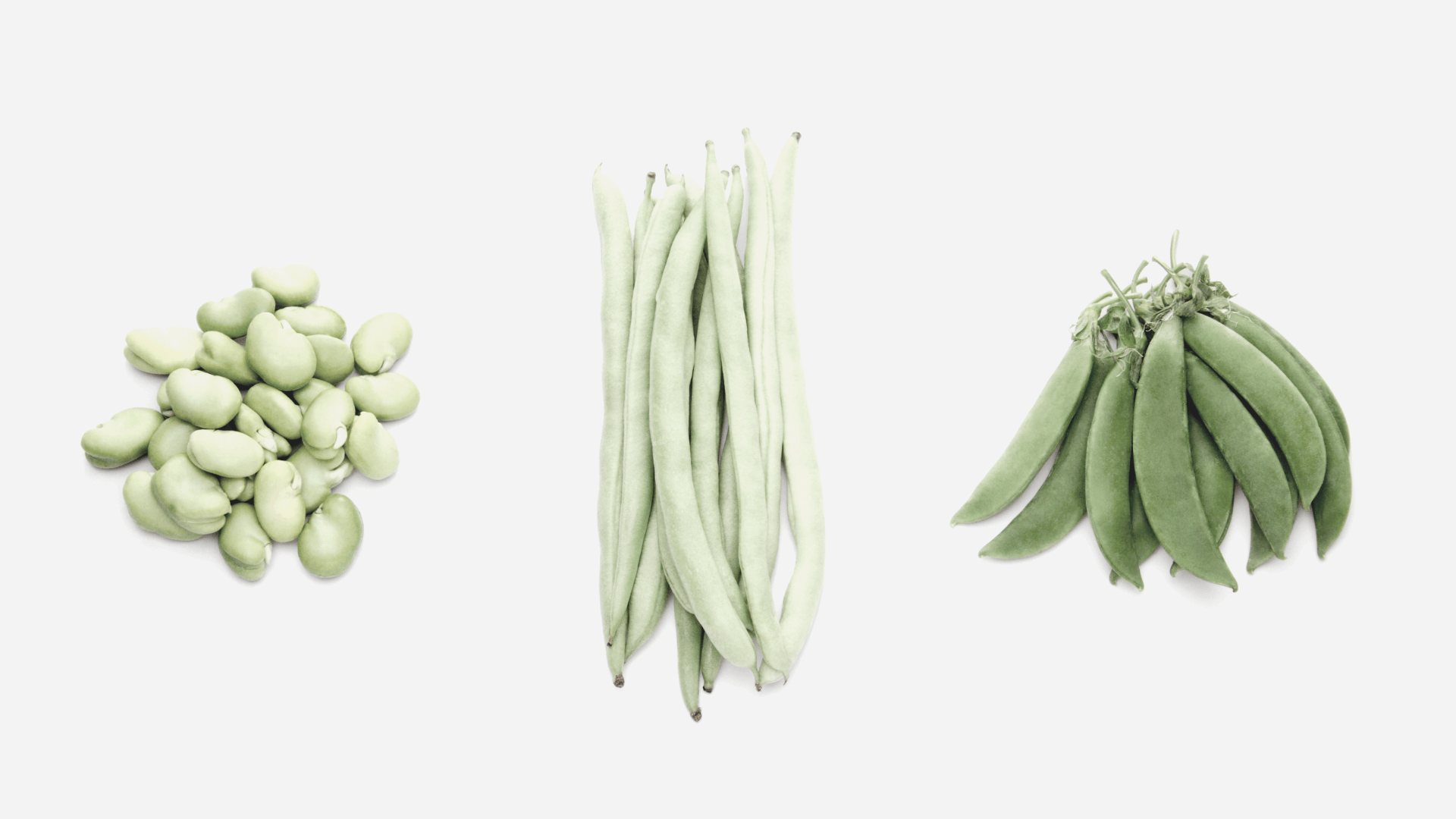What are the best vitamin k2 supplements?
I’ve mentioned vitamin K2-7 before, so what does vitamin K2 have to do with the gut anyways?
Chris Masterjohn states,
If there’s a single vitamin you need to know more about, it’s vitamin K2. The first reason is you’re probably not getting enough. The second is that it doesn’t get the attention it deserves, and it’s really hard to find reliable and easy-to-use information about it.
Because it clearly plays an important role (despite not getting much mainstream attention), let’s explore it together today.
What Does Vitamin K2 Have to Do with the Gut
Click HERE to save this post for later.
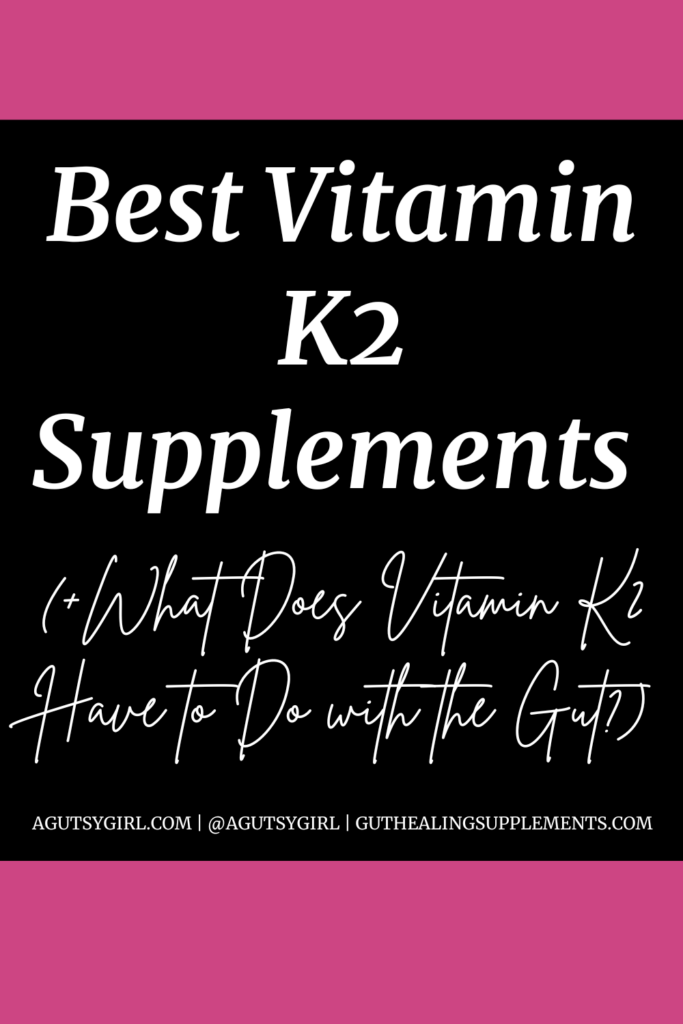
Vitamin K2 History
According to Healthline, “Vitamin K was discovered in 1929 as an essential nutrient for blood coagulation (blood clotting).
The initial discovery was reported in a German scientific journal, where it was called “Koagulationsvitamin” — which is where the “K” comes from.”
The vitamin also has roots from Weston Price, who I studied in depth during the very beginning of my healing (practicing the GAPS Diet). Weston was a dentist who studied teeth in various populations as an indicator of overall health.
He found that the non-industrial diets were high in some unidentified nutrient, which seemed to provide protection against tooth decay and chronic disease.
What is Vitamin K2
Dr. Markiwanicki says this about vitamin K2:
K2 is a key vitamin that more people should be familiar with. It’s critical for moving calcium out of the blood and into our bones.
K2 is the sister vitamin to K1. K1 is what’s found in leafy greens and responsible for coagulation (interferes with the medication warfarin which blocks coagulation). K2 is found more in dairy and meat products and is responsible for calcium metabolism. It’s also produced by our gut bacteria.
US Pharmacist says this about vitamin K,
Although the effect of magnesium and vitamin D3 on calcium metabolism was previously known, the importance of vitamin K in regulating the healthy function of calcium has only recently been recognized.2 Vitamin K has now been found to have a role in putting calcium in the right places in the body, such as in the bones and blood, and preventing pathologic calcification of the vessels and soft tissues.2
While there are three types of vitamin K, K3 is never a focus because it is synthetic and, because of the generation of free radicals, is considered toxic.
Therefore, the focus is on the other two.
There are two main types of vitamin K; vitamins K 1 and K2:
- (Phylloquinone) Vitamin K1: Found in plant foods like leafy greens.
- (Menaquinone) Vitamin K2: Found in animal foods and fermented foods.
Vitamin K2 can be further divided into several different subtypes, the most important ones and the superior form of vitamin k, being MK-4 and MK-7.
- MK-4: MK-4 has a poor bioavailability at a nutritional level dose
- MK-7: MK-7 form of vitamin k is well absorbed and detectable in the blood at nutritional levels. It also has a longer half-life, so a smaller dose can be used.
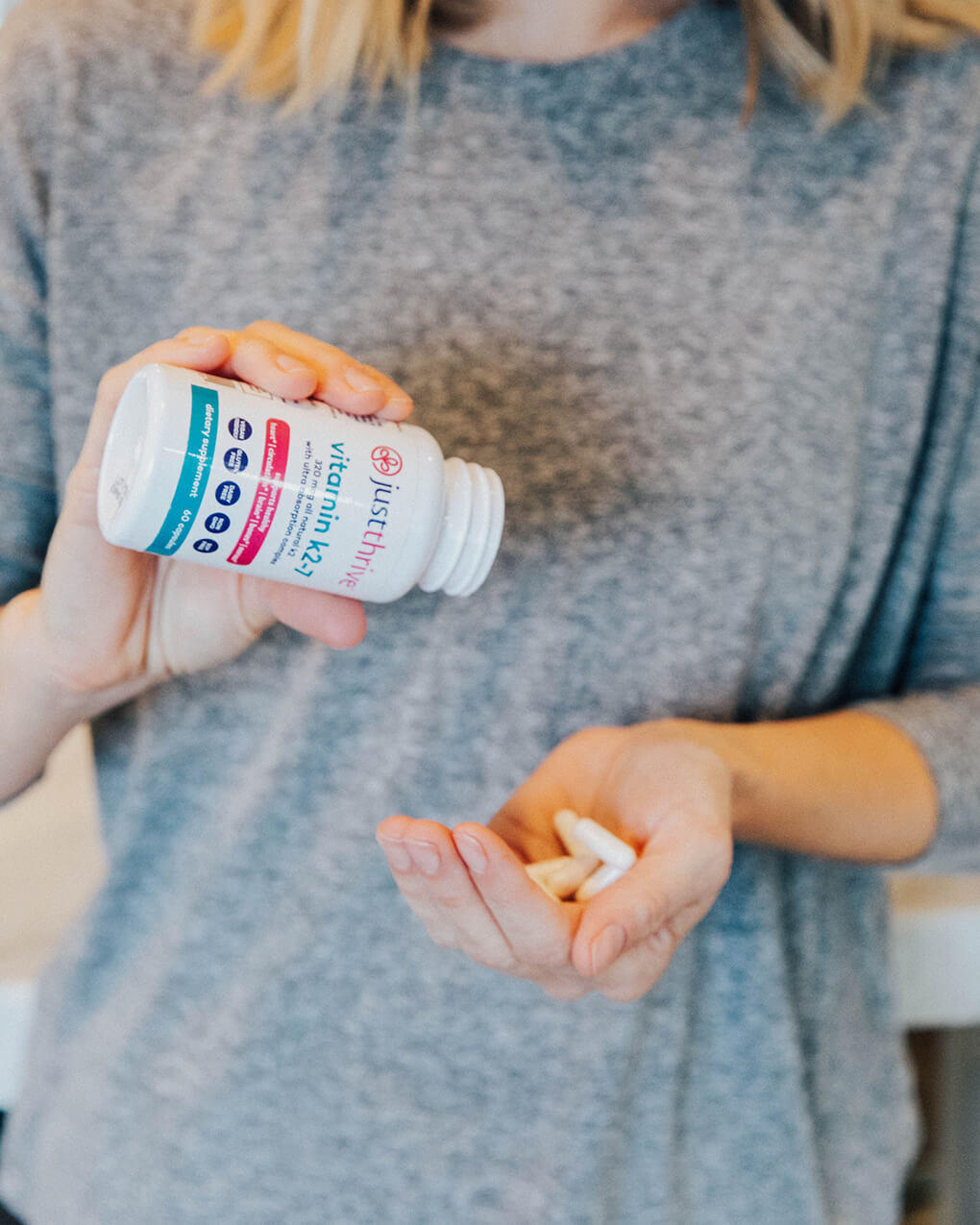
Vitamin K Deficiency
According to the NIH, if we do not get sufficient vitamin K, these are some problems that can arise:
- significant bleeding
- poor bone development
- osteoporosis
- increased risk of cardiovascular disease
Make note that medical doctors say a vitamin k deficiency in the United States is rare, but is common with infants.
Celiac Disease and Cystic Fibrosis are two primary conditions that can lead to a deficiency. (source)
So then What Does K2 Have to Do with the Gut?
Calcium, teeth, bone health…..so how is this even relevant to the gut?
Vitamin K2 is also produced by gut bacteria in the large intestine.
US Pharmacist states,
The first step in the conversion of K1 to K2 appears to be the cleavage of its side chain in either the liver or the GI tract, yielding vitamin K3 or menadione; much of this metabolite is detoxified by the liver and excreted in the urine, while the remaining portion can be used to synthesize K2 in tissues.
However, people with malabsorption syndromes and other gastrointestinal disorders and chronic diseases, such as cystic fibrosis, celiac disease, ulcerative colitis, and short bowel syndrome, might not absorb vitamin K properly and thus are not getting enough vitamin k.
Like almost every other vitamin, mineral, and general nutrient I talk about (which will ultimately be all of them!) they have everything to do with you because you might not be absorbing properly.
In other words, always – every single vitamin, mineral, and nutrient – will be relevant for the Gutsy community.
How Much Vitamin K Do We Need?
While it’s clear that vitamin K2 is important, it’s unclear whether or not you need to supplement. Furthermore, there isn’t a great way to test for vitamin K currently, so you’ll need to work with your doctor if you suspect a deficiency.
The adequate intake for females 19+ years is 90 mcg.
Note: To be clear, there are different perspectives on this. Chris Masterjohn makes a very strong case for vitamin k supplementation due to the essential role it plays. If you are interested in reading his full article, check out the Ultimate Vitamin K-2 Resource.
How to Get Vitamin K2-7?
Here is a list of the top 10 (most common) foods that contain vitamin K2 in the natural form of vitamin k:
- Natto
- Pork Sausage (regular fat, pan-fried)
- Beef Liver
- Green Pastures Butter Oil (average of two samples) (Use code ‘GUTSY10’ at checkout to save an automatic 10%)
- Hard Cheeses
- Chicken Meat (leg and thigh)
- Soft Cheeses
- Canadian Bacon (cooked)
- Organic Egg Yolks (average of two samples)
- Purity Farms Ghee (average of two samples)
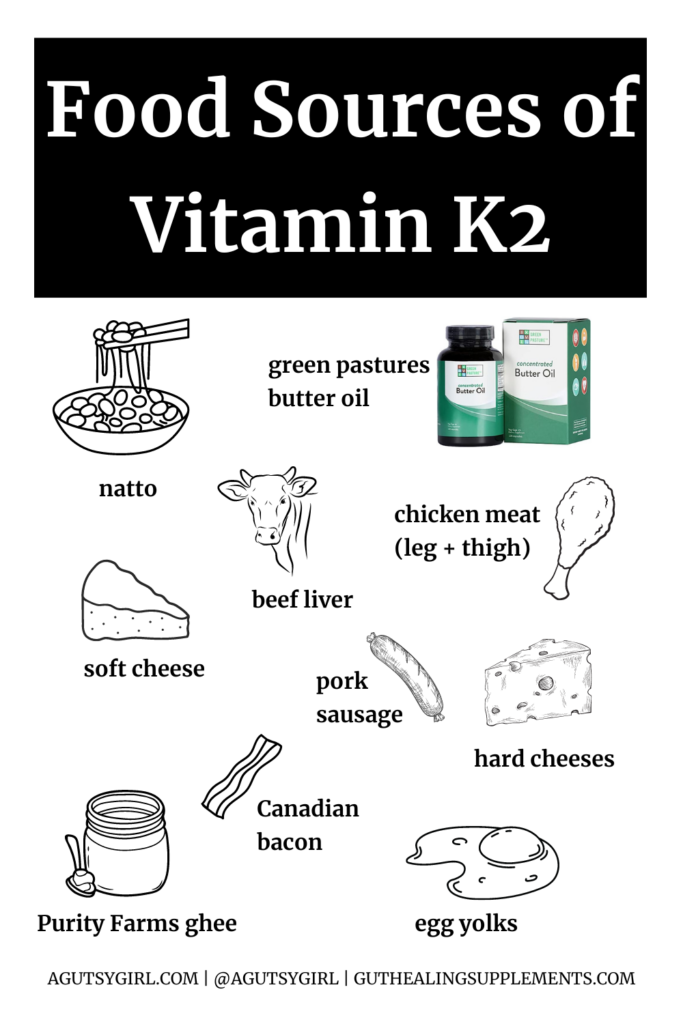
Since it’s a fat-soluble vitamin, it must be eaten with fat for best absorption.
Some great fat sources I love include:
- olive oil
- avocado
- olives
- walnuts
- fatty fish like salmon
If you want or need to supplement with vitamin K2, I’m a huge fan of the health benefits of vitamin k via Just Thrive K2-7 HERE.
And here’s why.
Best Vitamin K2 Supplements
Alright, then what about vitamin k supplements?
Remember, even the best supplements are not a replacement for a high-quality diet. But the reason I am passionate about supplements for gut health and gut healing is that the modern diet has destroyed so many of the nutrients for basic human health. The western diet in particular has put a damper on good health, so when I can, I do use dietary supplements.
I have two picks for the best vitamin K new supplement; the first is a high-quality vitamin K supplement and the other is vitamin K plus D3.
Vitamin K2-7
The 5-star reviews say it all.
Linda Suibielski says, “I know i feel better. I can’t really explain it. But I have been taking your probiotic as well. My insides are finally happy. Feels like a gift from God.”
And here are some of this unique vitamin k attributes:
- The FIRST All-Natural Complete Dose of Vitamin K2-7
- 320 mcg – the highest potency & ideal dose: No less than 320 mcg has been shown in studies to stimulate carboxylation. Carboxylation is the point at which there is enough K2 in the system to bind calcium, reverse osteoporosis, build strong bones and teeth, and increase major cardiac output and mitochondrial benefits.
- Formulated with MenaquinGold™ for 100% guaranteed potency
- Supports healthy heart, circulation, brain, healthy bones and nerves
- Vegan, Paleo and Keto Friendly
- All-natural, non GMO, and made WITHOUT soy, dairy, sugar, salt, corn, tree nuts or gluten
In addition to the K2, it also contains some K1, magnesium, and zinc (for optimal absorption). Note: An important factor with vitamin k is that many people are already taking vitamin D in isolation, which can create a K2 deficiency. To avoid accidental overdosing of vitamin D, it can be added separately if necessary. See below for more on K2-7 + Vitamin D3.
According to the Masterjohn article,
- MK-7 is much more effective than K1 at reaching bone. This doesn’t just make it good for bones: our bones use vitamin K to produce a hormone known as osteocalcin, which improves metabolic and hormonal health and increases exercise performance. Thus, MK-7 better supports these health benefits than K1 . The portion of MK-7 that reaches the liver, moreover, stays active in the liver much longer than K1 before being broken down; as a result, MK-7 is even better than K1 at supporting blood clotting.
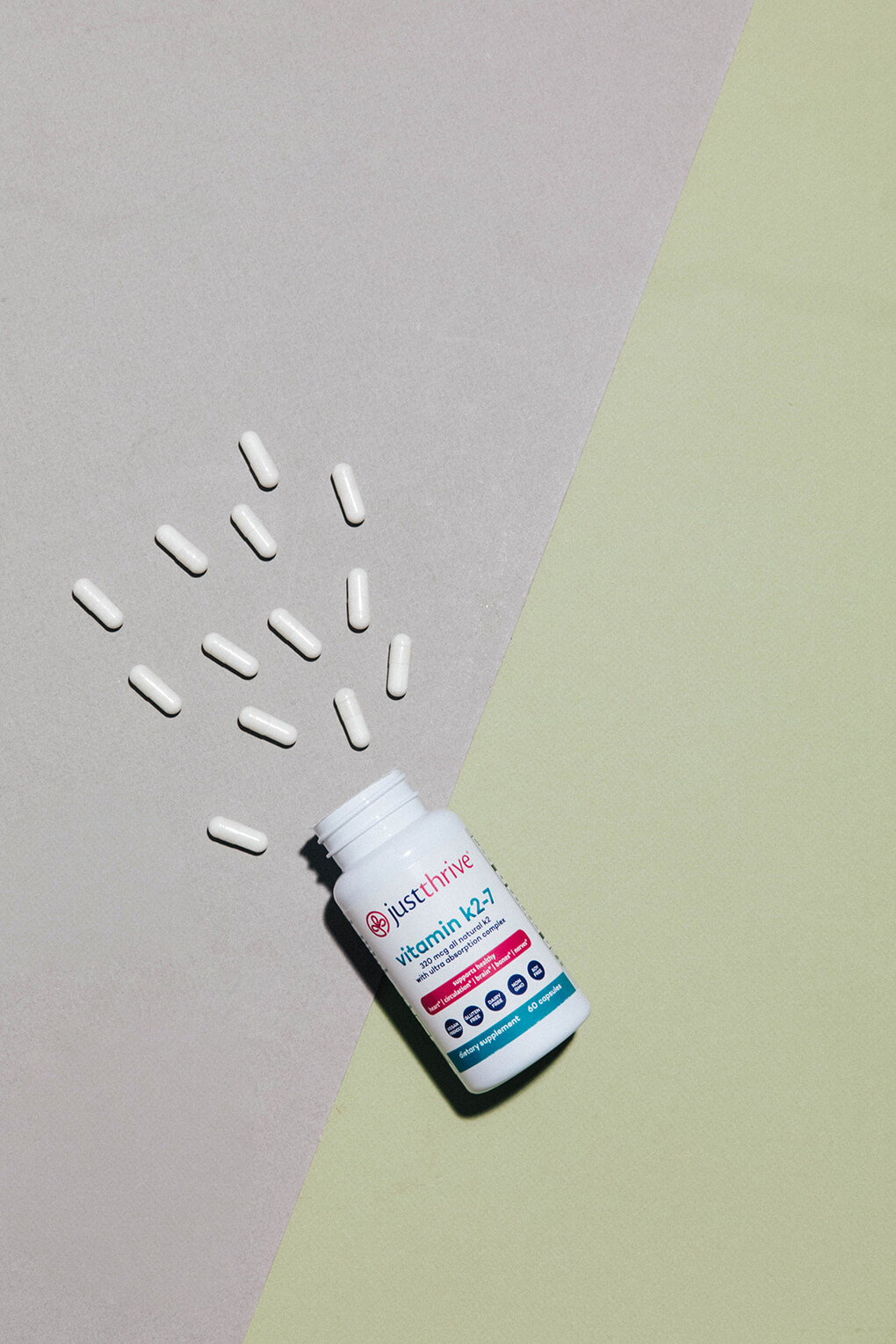
Vitamin K2-7 + D3
And the other ones includes the D3 vitamin.
Let’s talk about this combination of vitamin k with vitamin d.
One of vitamin D’s most important jobs is to help your body with calcium absorption.
But without vitamin K2, calcium can deposit in your brain, heart and other organs causing deadly “calcification”.
Doctors often equate calcification to scarring because it…
- Damages the function of the soft tissues being calcified
- Can be really hard to undo
So the addition of K2 is CRUCIAL, but there’s even more.
Not all forms of vitamin K are created equal.
Specifically, you need to ensure the types of vitamin K are in the form of “MK-7” (a.k.a. “menaquinone) as previously mentioned.
So Just Thrive created another vitamin supplement that combined vitamins d 3 with the MK-7.
And what makes it so superior is that:
- Just Thrive’s D3 is the same form of D3 your body manufactures when skin is exposed to sunlight
- Just Thrive’s K2 is naturally derived from non-GMO chickpea natto. The High potency formula guarantees maximum bioavailability and potency*. It’s vegetarian, gluten-free, dairy-free, nut-free, soy-free, sugar-free
The combination makes it an ideal choice for that perfect all-in-one k + d.
Remember, when you work with your practitioner, they will be able to help you decide which one is best for you and your individual needs!
Sources: HERE, HERE, HERE, HERE, HERE, and HERE.
If you liked this post, you might also enjoy:
Xox,
SKH
🤰 bloating be gone! weight loss through optimal gut health for women
💃ʜᴇᴀʟ ʏᴏᴜʀ ɢᴜᴛ. ʜᴇᴀʟ ʏᴏᴜʀ ʟɪfe.
🫶🏻 founder gutbyome.com

